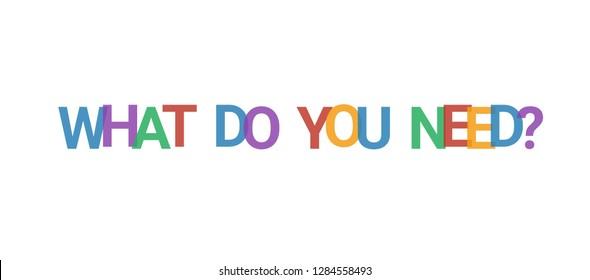Museveni’s 2026 Election Bid Amid Uganda’s Economic Pressures
At 80 years old, President Yoweri Museveni has officially announced his intention to run in Uganda’s 2026 presidential election, seeking to extend his leadership that has spanned nearly four decades. As Africa’s longest-serving leader since taking office in 1986, Museveni’s decision reignites ongoing debates about governance standards, democratic health, and the socio-political hurdles facing Uganda. His tenure is characterized by a blend of economic advancements alongside persistent accusations of political repression and human rights concerns.
Currently, Uganda faces significant economic headwinds including inflation rates surpassing 8%, a weakening Ugandan shilling against major currencies like the US dollar and euro, and youth unemployment rates exceeding one-fifth of the labor force. In response to these challenges, Museveni has outlined a policy agenda centered on revitalizing critical sectors:
- Job Creation Initiatives: Programs aimed at equipping young Ugandans with vocational skills and fostering entrepreneurship to combat high unemployment.
- Inflation Control Strategies: Measures designed to stabilize prices of essential commodities such as food items and fuel.
- Infrastructure Development: Continued investments in transportation corridors, expansion of renewable energy projects including solar power plants, and enhancement of water supply networks.
- Healthcare System Strengthening: Upgrading public health services with particular focus on maternal health care and combating infectious diseases like malaria and tuberculosis.
This platform reflects Museveni’s attempt to address pressing voter concerns while leveraging his extensive experience governing the country. Nonetheless, experts emphasize that success will hinge on adapting policies dynamically rather than relying solely on past accomplishments amid evolving economic realities.
Implications of Museveni’s Reelection for Uganda’s Democratic Landscape
Museveni’s pursuit of another term carries significant consequences for Uganda’s political environment—a system long criticized for limited pluralism. Observers contend that his administration has systematically undermined democratic institutions by restricting opposition activities and manipulating electoral frameworks. Key anticipated impacts include:
- Tightened Political Dominance: Expected escalation in government efforts curbing opposition party operations ahead of elections through legal restrictions or administrative barriers.
- Sociopolitical Polarization Intensifies: Growing divisions between supporters loyal to Museveni’s regime versus critics could heighten social tensions nationwide.
- Diplomatic Strains with Western Partners: Potential deterioration in relations with donor countries demanding transparent electoral processes may affect foreign aid inflows crucial for development programs.
| Governance Dimension | Current Status | Projected Consequences |
|---|---|---|
| Civil Liberties | Increasingly restricted under security apparatus pressure | Reduced citizen participation in political affairs |
| Erosion of legal safeguards against abuse of power |
Opposition Forces & Civil Society: Navigating Challenges Ahead Of Elections
The upcoming election cycle presents both hurdles and openings for opposition parties along with civil society organizations (CSOs) operating within an increasingly restrictive environment. Historically marginalized through stringent laws—including recent legislation curtailing protest rights—and intermittent arrests targeting activists, dissent remains tightly controlled yet resilient.*1*
- A burgeoning cohort of youthful political leaders is emerging from disillusioned younger voters frustrated by stagnation; their rising influence could significantly alter electoral dynamics; li >
- Civil society groups are increasingly harnessing digital tools such as social media platforms to mobilize grassroots support despite governmental pushback; li >
- The international community continues vigilant monitoring over human rights conditions—potentially amplifying diplomatic pressure advocating reforms during this pivotal period; li >
A recent survey conducted by Citizen’s Voice reveals shifting public sentiment toward governance reforms:*2*
| Indicator th > | Percentage (%) th > tr > |
|---|---|
| Support For Opposition Parties | 42% | tr >
| Demand For Political Reform | 65% | tr >
| Trust In Civil Society Organizations | 58%
This evolving context highlights how vital it will be for opposition entities alongside civil society actors to strategically navigate constraints if they aim at shaping Uganda’s democratic future meaningfully during this critical election phase.
Looking Forward: Assessing Uganda’s Path Under Continued Museveni Rule
Museveni’s candidacy at age 80 signals ongoing consolidation amid multifaceted socio-economic challenges confronting the nation today. While his government points proudly toward achievements such as infrastructure milestones—including recently completed projects like the Kampala-Entebbe Expressway—and agricultural productivity gains driven by technology adoption initiatives—the persistent cloud cast by press freedom limitations remains unresolved.
As campaigning intensifies over coming months domestically—and observers across East Africa watch closely given regional stability interconnections—the forthcoming vote transcends mere electoral procedure.
Ultimately,the contest represents a defining moment between preserving entrenched authority or embracing transformative change increasingly demanded by many Ugandans eager for renewed democratic vitality.
—
*1* See: Zimbabwe Pre-SADC Crackdown – Council on Foreign Relations (https://afric.news/2025/02/17/zimbabwes-pre-sadc-crackdown-council-on-foreign-relations/)
*2* AFRICA / TOGO – University academics call halt on constitutional process – Agenzia Fides (https://afric.news/2025/02/17/africa-togo-university-academics-are-asking-to-stop-the-process-of-adopting-the-new-constitution-agenzia-fides/)
(Note: Links retained per original content.)

